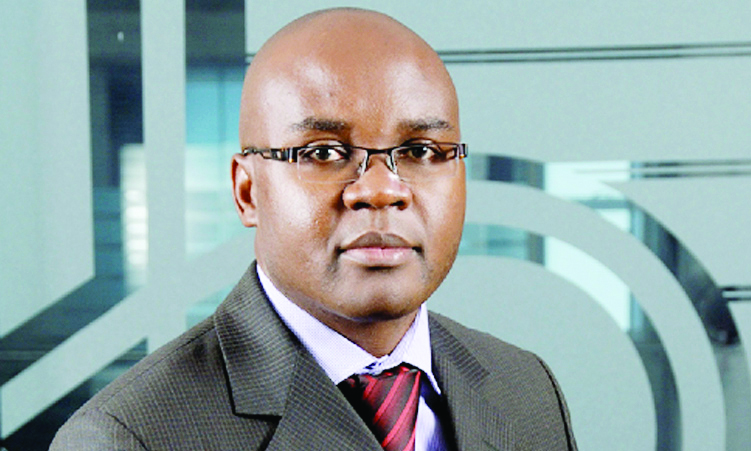Former Development Bank of Namibia (DBN) chief executive Martin Inkumbi’s interest in an entity that manages money on behalf of the Government Institutions Pension Fund (GIPF) is being used by his rivals as a tool to derail his ambition to land the GIPF chief executive position.
Inkumbi, considered a front-runner for the GIPF job, is a shareholder in Mumi Investment Manager, which manages money using civil servants’ GIPF pensions.
His detractors have quietly complained that Inkumbi is conflicted.
Inkumbi has told The Namibian his shareholding is known at the GIPF.
He says full details of the shareholders had to be disclosed for approval when his company bid for the investment management mandate five years ago.
“I had no relations with the GIPF then, nor do I have now. I try to avoid improper conduct,” he says.
Asked about being considered a front-runner, Inkumbi says: “I have no knowledge and no comment on the GIPF’s recruitment.”
The race for the GIPF chief executive job has heated up this year, with Inkumbi and GIPF chief operations officer Elvis Nashilongo being considered the top two candidates.
However, there are concerns that the recruitment process is being manipulated.
For instance, the GIPF has started another recruitment process within the existing hunt for a new boss.
The latest development has led to allegations that the fund’s board of trustees are shifting the goalpost, leading to fears that the integrity of the process may be compromised.
While the initial process was not yet concluded, albeit at the tail end, The Namibian has been informed of a new shortlist being conducted by a new consultant roped in by the board of trustees.
This time two new candidates have been added to the shortlist – NamPost’s chief executive, Festus Hangula, and Retirement Fund for Local Authorities and Utility Services in Namibia’s Dorian Amwaandangi.
The two will join Inkumbi and Nashilongo, who were part of the initial shortlisted candidates who also had interviews.
“Unfortunately, I am not privy to those developments,” Hangula said on Tuesday.
“I have scanned all incoming communication directed to me, and I can verify that I do not know of such information,” Amwaandangi said on Wednesday.
“I have no comment, talk to the board,” Nashilongo said on Tuesday.
ORGANISED CHAOS
The new developments represent confusion over the way the country’s largest pension fund is governed.
Reliable sources say the initial process ended with two GIPF executives, Nashilongo and GIPF chief legal officer Melkizedek Uupindi, topping the list, followed by Namibia Financial Institutions Supervisory Authority deputy chief Erna Motinga.
Inkumbi, it is believed, came fourth during that process.
Uupindi, who was seen as a favourite, was allegedly then disqualified because he did not meet the initial criteria of having served in an executive position for at least 10 years.
It is not clear why Motinga was disqualified, as observers said she performed well in the interview process.
The board of trustees then decided to appoint a consultant to start a new process within the process.
This came with the emergence of a new shortlist comprising Hangula, Amwaandangi, Nashilongo and Inkumbi.
GIPF RESPONDS
GIPF board chairperson Nillian Mulemi has refuted the assertion that the fund’s recruitment panel altered criteria to evaluate candidates for the chief executive role.
Mulemi says the board has established a panel comprising trustees and an industry expert, each with their own full-time professional commitments, to oversee the recruitment process according to the GIPF’s policies on hiring, selection and termination.
“Conflicting schedules and unforeseen circumstances of panel members impacted the set schedule for the conclusion of the recruitment process,” she says.
Mulemi says the board has put in place measures to ensure continuity and stability in the fund during the recruitment period.
Onno Amutenya, appointed on a six-month contract starting from 5 August is set to serve as the fund’s acting chief executive until February next year or until the position is filled.
Mulemi says the board of trustees is committed to finalising the recruitment process before Amutenya’s acting period concludes.
Last year, media headlines billed Inkumbi as David Nuyoma’s heir apparent, shortly after it was announced that he would be stepping down as DBN boss.
He was considered the favourite to take over the GIPF top job.
But now, there are questions as to whether the hiring of a new consultant and creating a new shortlist within an existing process are aimed at favouring one of the candidates.
Observers blame the delay in the process on board infighting.
The Namibian previously reported that the board was divided, and a re-evaluation process was then proposed and approved by the board.
The consultants running the re-evaluation process allegedly wanted to only shortlist people who have served as chief executive officers.
This move was allegedly challenged by some on the board and set aside.
Stay informed with The Namibian – your source for credible journalism. Get in-depth reporting and opinions for
only N$85 a month. Invest in journalism, invest in democracy –
Subscribe Now!






